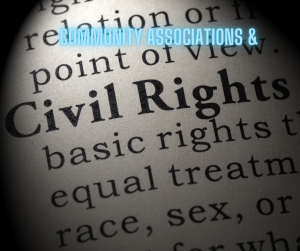 The United States Equal Employment Opportunity Commission (“EEOC”) recently created a new webpage with helpful practical information to guide employers and employees about employment discrimination based on sexual orientation and gender identity. This new webpage provides additional clarity about sexual orientation and gender identity protections based on the 2020 Supreme Court decision in Bostock v. Clayton County (decided on Jun. 15, 2020). In Bostock, the Supreme Court held that those firing individuals because of their sexual orientation or transgender status violated Title VII’s prohibition on discrimination because of sex. Title VII is part of the Civil Rights Act of 1964, a national law that prohibits employment discrimination based on protected classes of people such as race, color, religion, sex, and national origin.
The United States Equal Employment Opportunity Commission (“EEOC”) recently created a new webpage with helpful practical information to guide employers and employees about employment discrimination based on sexual orientation and gender identity. This new webpage provides additional clarity about sexual orientation and gender identity protections based on the 2020 Supreme Court decision in Bostock v. Clayton County (decided on Jun. 15, 2020). In Bostock, the Supreme Court held that those firing individuals because of their sexual orientation or transgender status violated Title VII’s prohibition on discrimination because of sex. Title VII is part of the Civil Rights Act of 1964, a national law that prohibits employment discrimination based on protected classes of people such as race, color, religion, sex, and national origin.
The new webpage is intended to function as one comprehensive resource to educate employees, applicants, and employers about the rights of all employees, including lesbian, gay, bisexual, and transgender workers, to be free from sexual orientation and gender identity discrimination in employment. In addition, the new webpage includes information on related topics of harassment and retaliation. Although Title VII and Bostock only apply to employers with 15 or more total employees and does not generally apply to independent contractors, associations with any employees can still learn best practices from these new EEOC resources to prevent discrimination (and liability) in the workplace.
We share below some important reminders and takeaways from the recently published resources:
 HOA Law Blog
HOA Law Blog





 Many of our condo and HOA association clients have employees. Some have many employees. And this week, many of those employees are talking about and betting on the game, oftentimes while at work. In fact, some employees have set up betting pools encouraging other staff members to place wagers on various aspects of the game. Legal? What about all that cash that is being passed amongst employees? And what about the lost productivity?
Many of our condo and HOA association clients have employees. Some have many employees. And this week, many of those employees are talking about and betting on the game, oftentimes while at work. In fact, some employees have set up betting pools encouraging other staff members to place wagers on various aspects of the game. Legal? What about all that cash that is being passed amongst employees? And what about the lost productivity?
 We know that most of you are likely overwhelmed with the new Davis-Stirling Act. But there was other new legislation that impacts many California community associations.
We know that most of you are likely overwhelmed with the new Davis-Stirling Act. But there was other new legislation that impacts many California community associations. We are often called upon to assist boards of directors with the termination of an association employee. All too often, however, we are called too late, after the board or manager has terminated the employee, and frequently we find that the termination was done incorrectly and problems have arisen. When terminating an employee, it is always best to consult with legal counsel first, as there are appropriate and inappropriate ways to terminate an employee. By talking first with legal counsel, the board and/or manager can ensure that termination is the appropriate remedy and ensure that it is done correctly to avoid exposure to the association as the employer, avoiding expensive and time-consuming litigation.
We are often called upon to assist boards of directors with the termination of an association employee. All too often, however, we are called too late, after the board or manager has terminated the employee, and frequently we find that the termination was done incorrectly and problems have arisen. When terminating an employee, it is always best to consult with legal counsel first, as there are appropriate and inappropriate ways to terminate an employee. By talking first with legal counsel, the board and/or manager can ensure that termination is the appropriate remedy and ensure that it is done correctly to avoid exposure to the association as the employer, avoiding expensive and time-consuming litigation.